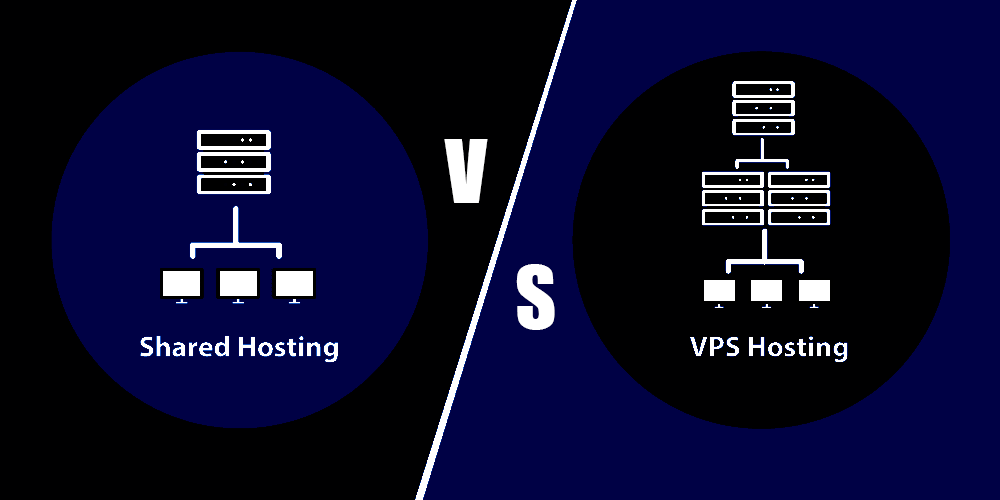


Every website needs a home – a place where its files, images, and data are stored and served to visitors. This is where web hosting comes in. The right hosting plan ensures your website is fast, secure, and always accessible to users. But with so many hosting options available, making the right choice can feel overwhelming.
Two popular hosting options are shared hosting and VPS hosting. Each caters to different website needs, from beginner blogs to growing e-commerce sites. Let’s explore each in more detail.
Shared hosting is the most basic and commonly used form of hosting, ideal for beginners or small websites. In this setup, multiple websites share a single physical server and its resources, such as CPU, memory, and bandwidth.
VPS (Virtual Private Server) hosting is a step up from shared hosting. In VPS hosting, a single physical server is divided into multiple virtual servers. Each virtual server operates independently, with its own dedicated resources like RAM and storage. This gives you more control and better performance compared to shared hosting.
Now that we’ve explored the basics of both hosting types, let’s look at how they compare across key factors.
In shared hosting, the performance of your website can fluctuate depending on the traffic and resource usage of other websites on the same server. This can lead to slow loading times during peak periods. On the other hand, VPS hosting provides dedicated resources, ensuring your site performs consistently, even during traffic spikes.
With shared hosting, the security risks are higher because your site is on the same server as other websites. If one site is compromised, it can affect others. VPS hosting offers more robust security as each virtual server is isolated, meaning the actions of one site won’t impact another.
Shared hosting plans are limited in terms of scalability. If your site grows and requires more resources, you may need to upgrade to a VPS or dedicated hosting plan. VPS hosting, however, is highly scalable. As your site grows, you can easily increase the allocated resources without migrating to a new server.
Shared hosting is generally the more affordable option, making it ideal for individuals or small businesses with limited budgets. VPS hosting is more expensive, but the cost is justified by the added performance, control, and security.
Shared hosting is perfect for beginners, personal websites, or small businesses with low to moderate traffic. If you’re just starting and want an affordable, easy-to-use option, shared hosting is an excellent choice. It’s ideal for:
VPS hosting is best suited for businesses or websites that require more resources, security, and control. If your site experiences high traffic or you run an e-commerce business, VPS hosting is the better choice. You should consider VPS hosting if:
For e-commerce websites, VPS hosting is usually the better choice. E-commerce sites require fast loading times, strong security, and the ability to handle high traffic during sales events. Shared hosting may not provide the performance or security needed for a successful online store.
Small businesses with limited traffic and budgets may opt for shared hosting, especially if they don’t need advanced features. However, if you anticipate growth or run multiple applications, VPS hosting offers more flexibility and scalability for the long term.
Upgrading from shared hosting to VPS is relatively straightforward. Most hosting providers allow you to seamlessly migrate your website’s data to a VPS plan. It’s recommended to backup your data before starting the migration process and work with your hosting provider’s support team to ensure a smooth transition.
Can I switch from shared hosting to VPS later?
Is VPS hosting more secure than shared hosting?
Do I need technical knowledge to manage VPS hosting?
Why is shared hosting so much cheaper than VPS?
Which hosting is better for SEO – shared or VPS?
We’ll take care of the process of moving your website from your old web hosting company to our platform so you can focus on what matters.

